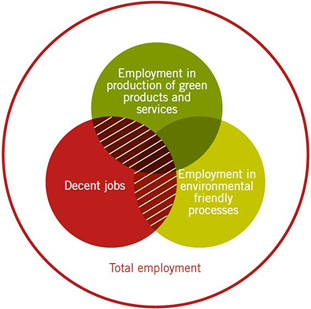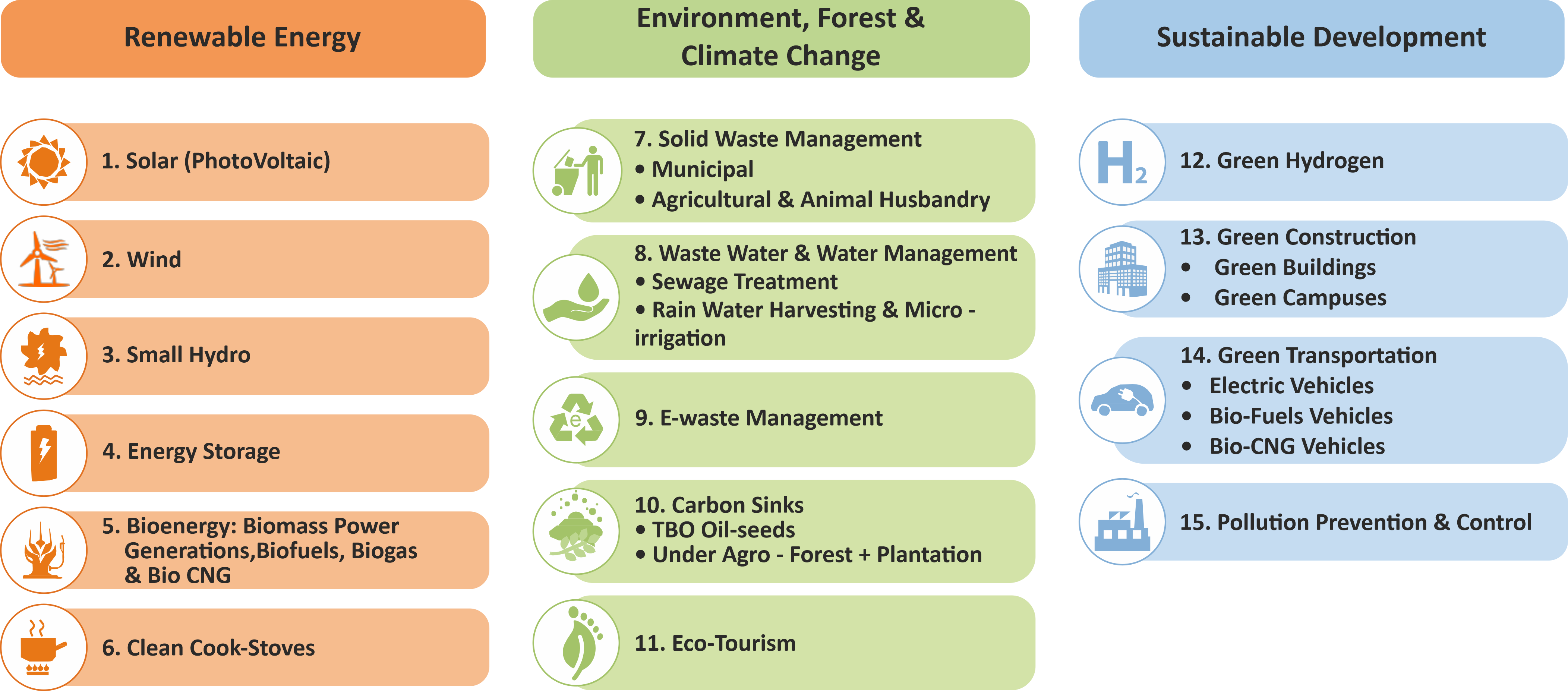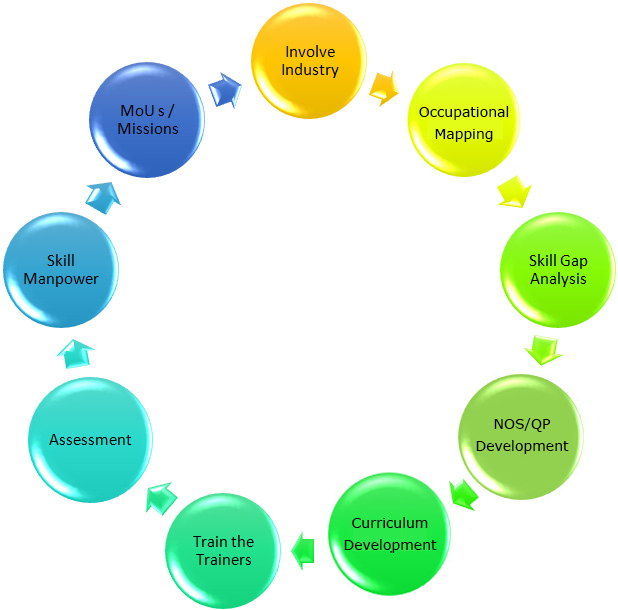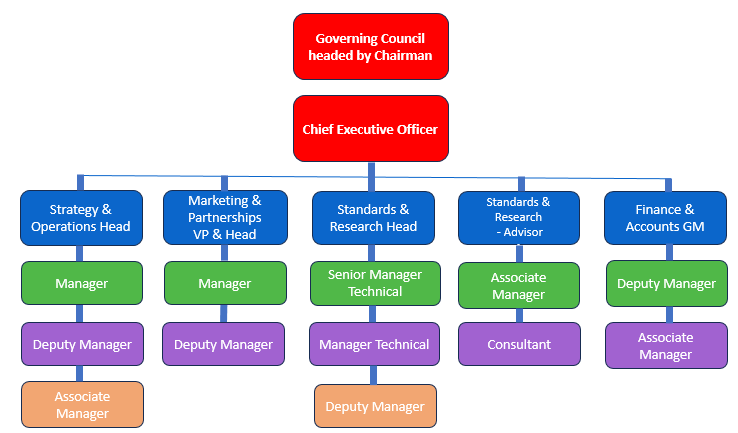As India moves steadily toward becoming the third-largest economy by 2030, we are on the path of sustainable growth, driven by the Prime Minister’s vision of Atmanirbhar Bharat and a Viksit Bharat. These goals are ambitious but achievable through a focused and collaborative approach across various sectors. The success of the Make in India and Make for the World initiatives has positioned our country well in several industries, including energy, infrastructure, automotive, pharmaceuticals, and defense.
Looking ahead, I am confident that India will demonstrate the same level of progress in the emerging sectors of solar energy, green hydrogen, and electric vehicles (EVs), among others. Recent government initiatives have emphasized a clear agenda for sustainable economic growth. With the government’s ambitious target of achieving net-zero emissions by 2070, the pace of investment in green energy has accelerated significantly. However, the realization of this vision will largely depend on two critical factors: technology and skilled manpower. While the government provides strong policy support, the Skill Council for Green Jobs (SCGJ) plays a crucial role in ensuring that we have the workforce required to meet the demands of a green economy. India’s solar module manufacturing capacity is projected to reach 80-100 GW in the coming years, creating an enormous demand for skilled professionals.
We also remain committed to the goal of making India a developed nation by 2047, ensuring inclusive access to education, healthcare, and skills for all sections of the population. India’s demographic advantage offers us the opportunity to position the country as the world’s skilled capital. Capacity building is essential to this vision. The Hon’ble Prime Minister’s announcement of the Pradhan Mantri Surya Ode Yojana, aimed at installing solar rooftops on one crore houses, offers the potential to create millions of jobs and nurture entrepreneurship.
However, this green transition will not be possible without a dedicated focus on skilling. While the SCGJ has empowered over 575,000 individuals in the past eight years and developed qualifications in emerging areas, much more work remains to be done. With India producing 1.5 million engineering graduates annually, only a small percentage find high-quality employment. Industry stakeholders often express concern over the mismatch in skills, signaling a vast opportunity for improvement.
The challenge of a skilled workforce extends beyond manufacturing to project execution, operations, and maintenance in the green energy sector. It is imperative that both industry and government invest in upskilling and reskilling to meet the growing demands of the future. The Skill Council for Green Jobs is prepared to play a pivotal role in this transformation.
Together, let us “Skill for the Right Fit”, building a brighter and sustainable future for our country.
As we look back on another remarkable year at the Skill Council for Green Jobs (SCGJ), I am filled with immense pride at the impact we have made in driving India’s green energy transition. Our commitment to advancing key sectors, especially Green Hydrogen, Renewable Energy & Waste Management has never been stronger. These areas are at the heart of India’s vision for a cleaner, more sustainable future, and our work continues to align with the nation’s ambitious goals.
A key focus this year has been the Green Hydrogen Mission, a cornerstone of India’s decarbonization strategy. Green hydrogen is poised to play a transformative role in reducing carbon emissions across industries, from energy and transportation to manufacturing. At SCGJ, in association with ICF we have completed a Skill Gap Study across Green Hydrogen Sector which was launched in March 2024 and have initiated several capacity-building programs to develop a skilled workforce that can support this emerging sector. By partnering with industry leaders, government bodies, and higher educational institutions, we are building training modules that will equip India’s workforce with the expertise required to harness the potential of green hydrogen, thereby enabling the country to meet its clean energy targets.
In addition, the Pradhan Mantri Surya Ghar Yojna, which aims to increase rooftop solar energy adoption across households, has been a key area of focus for SCGJ. Solar energy is central to India’s renewable energy future, and through this initiative, we are committed to training Installation Helpers in the Solar PV domain who will help in the seamless integration of solar PV systems into homes and businesses. Our training programs aim to empower individuals and local communities with the technical knowledge needed to install and maintain solar systems, contributing to energy independence and sustainable livelihoods.
Our Vision 2030 is rooted in these initiatives, focusing on creating a skilled workforce capable of driving the green economy forward. By expanding our skilling efforts in green hydrogen, solar energy, and other critical areas, SCGJ is dedicated to ensuring that India not only meets but exceeds its sustainable development goals.
I would like to thank our partners, stakeholders, and the dedicated team at SCGJ for their tireless efforts. Together, we are building a cleaner, greener, and more prosperous future for India.
[read more=”Read more” less=”Read less”]
At the enterprise level, green jobs can produce goods or provide services that benefit the environment, for example green buildings or clean transportation. However, these green outputs (products and services) are not always based on green production processes and technologies. Therefore green jobs can also be distinguished by their contribution to more environmentally friendly processes. For example, green jobs can reduce water consumption or improve recycling systems. Yet, green jobs defined through production processes do not necessarily produce environmental goods or services.
As illustrated by the diagram below, a distinction can thus be drawn between employment in green economic sectors from an output perspective and job functions in all sectors from an environmentally friendly process perspective. For the ILO, green jobs are all those jobs that fall in the dashed area:

Green jobs are central to sustainable development and respond to the global challenges of environmental protection, economic development and social inclusion. By engaging governments, workers and employers as active agents of change, the ILO promotes the greening of enterprises, workplace practices and the labor market as a whole. These efforts create decent employment opportunities, enhance resourcee efficiency and build low-carbon sustainable societies.
[/read]
The Government of India has announced the National Policy for Skill Development and Entrepreneurship 2015. It envisages a major role of private sector as shared responsibility for skill development in the country. The Ministry of Skill Development and Entrepreneurship has been creating Skill Councils in various domains.
The initial funding for the Sector Skill Council is by the government through National Skill Development Corporation (NSDC) with 10% contribution from the industry. It becomes a self-sustainable body over a period of 3-5 years.[read more=”Read more” less=”Read less”]
On 28th May, 2015. More recently, Skill Council for Green Jobs (SCGJ) has been created by MSDE. This Council is promoted by the Ministry of New and Renewable Energy, Ministry of Power and Confederation of Indian Industry.
SCGJ is a registered not for profit society which is being managed by an industry led Governing Council. It would also have sector specific Advisory Board and country wide representation of Industry Members (including MSME’s).[/read]

SCGJ will act as a bridge between the Government of India, State Governments and industry for developing strategy & implementing programmes for Skills Development, correlated to Industry needs but also aligned to best International practices. A national level data base of skilled manpower is proposed to be created which can be directly utilised by the industry.

